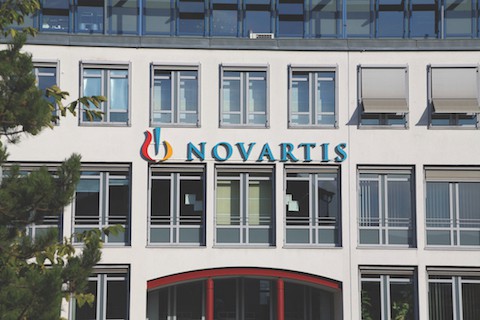
Novartis has secured exclusive worldwide rights to develop and commercialise a library of radioligand therapies targeting fibroblast activation proteins (FAP) through a new licence agreement.
Novartis has licensed the agents, including two assets known as FAPI-46 and FAPI-74, through an assignment agreement with iTheranostics, an affiliate of SOFIE Biosciences.
FAPs are expressed on the cell surface at low levels in most normal adults tissues, but are found to be over-expressed in common cancers, with high FAP expression on cancer-associated fibroblasts generally associated with worse prognosis in solid tumours.
“We continue to invest in radioligand therapy as one of the four unique platforms of Novartis Oncology. We believe working across multiple approaches is the key to reimagining cancer care,” said Susanne Schaffert, president, Novartis Oncology.
“FAP is an exciting target and these agents are a great fit with our radioligand therapy pipeline, which we are actively investigating across multiple tumour types. We believe this technology has the potential to transform many patients’ lives,” she added.
The agreement follows the announcement from Novartis last week that its investigational radioligand therapy, 177Lu-PSMA-617, hit both primary endpoints in a phase 3 trial in patients with advanced prostate cancer.
The phase 3 VISION study, an open-label study evaluating the efficacy and safety of 177Lu-PSMA-617 in patients with progressive PSMA-positive metastatic castration-resistant prostate cancer (mCRPC), compared the radioligand therapy plus best standard of care (SoC) to SoC alone.
In this trial, 177Lu-PSMA-617 met the primary endpoints of overall survival and radiographic progression-free survival, with significant improvements on both these markers.
The detailed results from the VISION trial are due to be presented at an upcoming medical meeting and included in regulatory submissions in the US and EU.
Radioligand therapies have emerged as a new potential class of precision oncology drugs. They combine two elements – a targeting compound (ligand) with a radioactive isotope, with the aim of causing DNA damage to inhibit tumour growth and replication.
For example, 177Lu-PSMA-617 binds to prostate cancer cells that express PSMA – a transmembrane protein – with high tumour-to-normal tissue uptake.
After 177Lu-PSMA-617 binds to these cells, emissions from the radioisotope damage tumour cells and impact their ability to replicate which can trigger cell death.
Novartis said this therapeutic approach limits damage to the surrounding normal tissue while enabling targeted delivery of radiation directly to the tumour.




